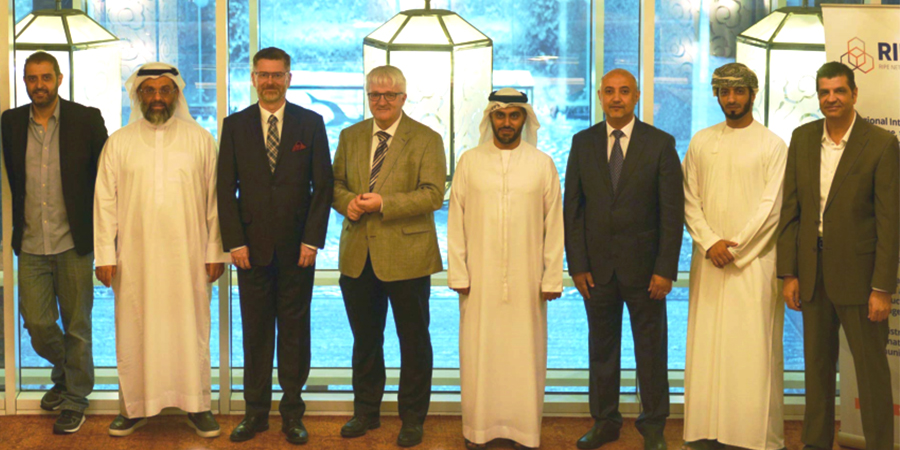The Telecommunications and Digital Government Regulatory Authority of the United Arab Emirates (TDRA) and the RIPE Network Coordination Centre (RIPE NCC), the regional Internet registry for Europe, the Middle East and parts of Central Asia, jointly hosted the sixth government roundtable for Arab ICT ministers and heads of regulatory authorities recently at the Ritz-Carlton, Dubai International Financial Centre (DIFC). High-level government delegations from the United Arab Emirates, Oman, Yemen, Lebanon, Qatar, Iraq and the League of Arab States attended the event.
Under the theme “Digital Infrastructures: Ensuring Secure Networks and Supporting Sustainable Development in the Arab Countries,” the roundtable addressed the obstacles the region's nations face in developing a sustainable and secure Internet. The roundtable discussed ways to increase the connectivity and security of the Internet, such as continuing the deployment of IPv6 to meet the massive demand for connectivity, employing RPKI to ensure the safety of networks, and building IXPs to enhance peering, lower operational costs and reduce reliance on external networks.
In addition to digital infrastructures, there were discussions about collaboration at regional and international venues on public policy, given the significance of its impact on Internet fragmentation.
In his opening address, H.E. Abdulrahman Almarzooqi, director of public policy and programs at TDRA, stressed the need for such dialogue and high-level discussions, which reflect TDRA’s efforts in supporting Internet development in the country and the region. “Regional and international cooperation has never been as necessary and urgent as it is now. We have important strategic issues to examine and discuss; we have many headlines that represent opportunities and challenges at the same time,” he noted.
Meanwhile, Hans Petter Holen, managing director of the RIPE NCC, said, “The promise of an Internet that will bring innovation, growth and social prosperity will only be met through trust and collaboration with each other. The responsibility lies on all of us, and I am sure that we can take it together. Otherwise, we will face a situation where we risk undoing all our progress in the region over the past years.”
Also present were H.E. Eng. Tareq Al Awadi, head of the Arab team at the International Telecommunication Union; Ms. Eva Nadir, a member of the executive board at the Communications and Media Commission (CMC) in Iraq; and H.E. Eng. Basil Al-Ayoubi, director general of investment and maintenance at the Ministry of Telecommunications in Lebanon; and Piotr Strzyżewski, a RIPE NCC Executive Board member
Experts from the TDRA and RIPE NCC contributed to the roundtable discussions. RIPE NCC’s Chafic Chaya discussed the collaboration with the region’s governments during the Fifth Government Roundtable meeting, hosted by the Iraqi regulator, CMC. Jad El-Cham presented on the Internet’s development and sustainability in Arab countries, IPv6 deployment to support business development and the digital economy, Resource Public Key Infrastructure (RPKI) and routing security, and the role of regional Internet exchange points (IXPs) in traffic and data exchange.
In turn, Meshal Al Muhairi, director of digital policy development at TDRA, showcased the mutual efforts and development of digital infrastructure in the UAE.
Over the past few years, the TDRA and RIPE NCC have been tirelessly working to improve the Internet's infrastructure through joint capacity-building initiatives and collaboration.
The roundtable event served as a successful follow-up to the previous year's events held in the region. The RIPE NCC endeavors to maintain stable and resilient Internet connectivity by provisioning IP address registration, maintaining critical infrastructure, contributing to Internet routing security and offering capacity development.
